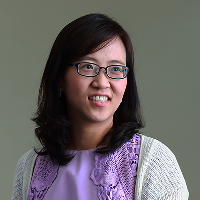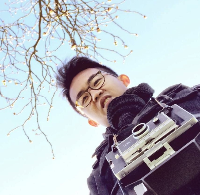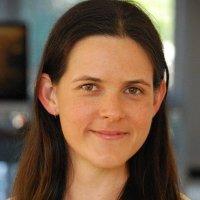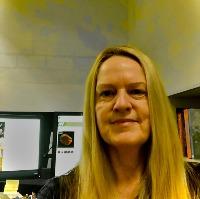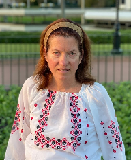Blog
Unless otherwise stated, content is shared under CC-BY-NC Licence
From “research output” to “research data” - a willingness to move forward?
Wachiraporn Klungthanaboon is Lecturer at the Department of Library Science at Chulalongkorn University in Thailand
About 10 years ago, the idea of collocating and providing digital research outputs through an institutional repository or a subject repository for online access was introduced to Thailand. For example, the Library at Chulalongkorn University had built its institutional repository named “CUIR - Chulalongkorn University Intellectual Repositories”. The CUIR has been developed gradually through time in order to serve our users’ information behavior in terms of the increasing number of research outputs, extended collection coverage, and more open access.
A Reflection: Outreach about digital preservation
Matthew Yang Jiefeng is Archive Officer at the Asian Film Archive in Singapore
The Asian Film Archive (AFA) reflects on its recent engagement with film students during an outreach session. The interaction with the students revealed that complacency is a major plague amongst content producers, posing a risk to the films that are under their care. Furthermore, many of them have misconceptions of digital data and how to care for them. This blog post shares some of the underlying assumptions AFA encountered during its interactions with the film community and its plans to address these challenges.
As we celebrate World Digital Preservation Day with colleagues around the world, we at the Asian Film Archive (AFA) are reflecting on a recent engagement with a group of film students in a film school in Singapore. We were speaking to them as part of the AFA’s engagement with the filmmaking community on preserving and caring for their works, to encourage good practices and to create awareness on common misconceptions about preservation practices.
People Get Ready - The WDPD Edition
At iPRES this year I presented a (rapid fire!) paper sharing my thoughts on the current state of digital preservation workforce development. The headlines were:
Working together to reduce digital information at risk
Zhenxin Wu is Professor of the Information System Department, and Deputy Director of the Digital Preservation Center of Chinese Academy of Sciences at the National Science Library in Beijing, China. She is also responsible for the technical system and data archive for NDPP (National Digital Preservation Program).
[Chinese version follows]
---From CCDP2019 to WDPD2019 and iPRES2020
Thanks to the invitation from DPC, I have an opportunity to be involved in World Digital Preservation Day again and also to introduce China's progress in digital preservation.
After being busy with Chinese Conference on Digital Preservation 2019 (CCDP, http://dipres2019.csp.escience.cn/dct/page/1 ), I start writing this blog for WDPD2019. Just like DPC's World Digital Preservation Day has become an international event, the CCDP series of conferences have also became the most important event for Chinese archivers. The surprises and exhaustion brought by CCDP2019 have not disappeared, and my mind is still full with CCDP2019.
Bits and Bytes: The Video
Jaye Weatherburn is Program Manager, Digital Preservation at The University of Melbourne in Australia
This year for World Digital Preservation Day, several passionate souls at the University of Melbourne, in collaboration with friends from the Australasia Preserves community of practice, have produced a video to celebrate all things digital preservation.
Ubiquity and the Floppy Disk: Challenges with Obsolete Carriers
Kevin Molloy is Manuscripts Collection Manger at State Library Victoria in Melbourne, Australia
Floppy disks have a remarkable technological provenance that dates from the late 1960s. Developing through many iterations, the standard 3½ inch disk, produced from 1981, had become largely ubiquitous by the 1990s as the go-to format for business, personal storage and transfer systems. Use of the 3½ floppy lasted until the mid-2000s, and, as a storage device, is found in many physical collections of unpublished papers acquired by State Library Victoria’s Manuscripts Team. Examples from quite diverse collections, include the papers of writers Sonya Hartnett and Peter Carey, the business records of Coles Myer and Bryant and May, the papers of journalist Christopher Bantick, politician Joan Kirner, chefs such as Mietta O’Donnell, and collections like the Miss Australia Company Records.
Digital preservation & digital asset management in the real world no mere matter of magic
Lee-Anne Raymond is Senior Coordinator, MV Images (DAMS) at Museums Victoria in Melbourne, Australia
When Mary Poppins measures herself using her magical tape measure it reads, “Mary Poppins, practically perfect in every way.” (Mary Poppins, P. L. Travers, 1934)
In the real world realm of Digital Preservation we can strive but will struggle to approximate such perfection without the assistance of the right software and engineering principles, as an intervening Poppins, in order to underwrite the magic. To perform digital preservation actions at scale competently and efficiently and in a repeatable way with trusted results, practically perfect, we need systems as well as systematic approaches. As laudable as our efforts are to do so using manual techniques underpinned by strict rules based standards, they do not and will not meet the challenge that the digital realm presents us.
You put WHAT in the repository??? State Library of Queensland’s project to audit the repository for obsolete physical carriers
Serena Coates is Digital Preservation Coordinator at State Library of Queensland in Australia
At State Library of Queensland (like at many other institutions around the world) when we started acquiring digital content on floppy discs, CDs, and DVDs, we didn’t know what to do with them. So, what was the wisdom of the day? “Put it in a box, and store it in the repository until there is a time when we work out what to do with it.” For State Library, that time is now!
With an increasing maturity of skills and knowledge in the area of digital preservation, and the imminent implementation of a digital preservation system (Rosetta), in 2016 we felt we were ready to tackle the issue of obsolete carriers that had been squirrelled away in our repositories for anywhere up to 30 years. And so, we embarked on an audit of physical carriers in our repositories.
A Couple of Views from New Zealand
Andrea Goethals is Digital Preservation Manager | Kaiwhakahaere Matapopore Matihiko, at the National Library of New Zealand | Te Puna Mātauranga o Aotearoa
At the National Library of New Zealand, quite a few of us play a role in preserving the nation’s digital heritage. If you were to ask each of us what digital materials are most at risk in New Zealand you would hear a variety of different opinions, depending on where we sit in the Library. Among other things you would hear about at-risk audio-visual collections on obsolete physical media, born-digital archival and special collections material across New Zealand, and social media. It’s true that these are very real challenges, but we are chipping away at many of them through a variety of initiatives at the Library and in collaboration with others.
So what challenges are we finding especially hard to address? In this post, Steve Knight and I describe some of the key challenges we face.
Is it World Digital Preservation Day Yet?
Is it World Digital Preservation Day yet? Yes it is! Here are some ways you can tell:
-
Has the sun come up over the National Library of New Zealand on the first Thursday in November?
-
Is this the first post of a digital preservation themed blog-a-thon on the DPC website?
-
Will there be a new edition of the BitList of Digitally Endangered Species before the end of the day?
-
Are there an abundance of stickers in more than a dozen languages, and versions of the swooshie logo available to download in even more?
-
Will there be lectures and seminars and workshops and webinars about digital preservation in dozens of countries and perhaps hundreds of venues?
-
Will there be digital preservation themed cake to share, and biscuits and baking?
-
Will there be singing and videos to match?
-
Will the fun continue till midnight somewhere out over the Pacific Ocean in about 36 hours from now?










































































































































